- Home
- Douglas Clegg
The Hour Before Dark Page 19
The Hour Before Dark Read online
Page 19
“What else?”
“It hasn’t been used since maybe. I don’t know. My grandfather never used it. It’s just been sitting.”
“Funny. It’s been my experience that somehow everything is used for something. Even if it’s not apparent at first.”
“Profound,” I said.
“It’s true. At least, I’ve found it to be true.”
“I never knew about it if it were ever used when I lived here. Dad might’ve stored stuff there. At one time. But he usually used the cabin for his tools.”
“That’s not true,” Harry said. “You told me yourself when we were kids. You called it ‘the place of punishment.’"
“Oh. Yeah. It was. That’s what we called it. Before I was nine or ten, that’s where Dad would haul me or Brooke off to spank us.”
“Just spank?”
“Well, with a belt a couple of times. Nothing too horrible. It stopped at a certain point.” I remembered more: “And my grandfather used to take him out there, too, when he was a kid. And my uncle. There was a post in the middle of the floor—well, in the dirt. Dad put the wood-slats of the floor down long after that. There was a post and Grandpa would tie one or more sons to it. Dad said it was stuff that people get arrested for now, but in his childhood, that’s how it was. Whippings. Birchings. I asked him why he didn’t tell anybody, and he said back then, there were about 100 people on the island, and most of them just looked the other way. Most of them thought whipping protected boys from growing up bad. Dad had horrible stories about it. My grandfather seemed really sweet, but my dad said he sometimes got whipped so hard that his back stuck to the sheets at night because of the blood. He hated that old man. He was practically happy when he died so that Dad could take care of Granny.” I paused a moment. “Harry, there’s no ghost. Unless it’s my great-grandma.”
“Forget the word ‘ghost,’" Harry said. “It’s a phenomenon. Belief in the afterlife doesn’t need to come into this. A phenomenon. That’s all it is. Right now. In the meantime, I want you to ask Brooke if she experienced anything there.”
“Brooke?”
“Sure,” he said. “She was in the smokehouse for a couple of hours.”
“So were cops.”
“But the cops didn’t experience any phenomena. You did. Brooke might’ve,” he said.
Grabbing my cup of hot tea from his newspaper-stacked coffee table, I asked, “Do you believe in ghosts, Harry?”
He smiled. “You and me were altar boys, Nemo. I believe that a man’s body and blood can come from wine and a wafer. I believe that a woman who is a virgin can give birth. I believe that God decided to come to the world in human form a couple thousand years ago. Do I really believe in all that? Yes and no. Part of me wants it to be true. Part of me thinks it’s a way of re-imagining existence, and our relationship with whatever created the world. Maybe virginity means purity. Maybe wine and water mean acceptance of a transcendent idea—that water can be wine. Maybe there was this guy who aligned himself so well with the truth of all existence that it was as if he were the son of God. But you know what? I don’t know. It might literally be water into wine, and a man who was God. I want to know, but I don’t. I’m not smart enough.” He leaned back in his leather chair and swiveled it around. He pointed to the tape machine. “If people die and remain where they died, that seems a bit easier to swallow, doesn’t it? Not that I do. I mean, ghosts? Not really. I’ve experienced this twice now. With you. With Mary Manley. If it had only happened once, I could forget about it. But twice?”
“Well, it’s weird. I’ll give you that.” Then I let out a kind of hyena laugh of relief.
“What was that about?” he asked.
“You used to hold séances.”
“Oh, please. It was just a Ouija board.”
“You do believe in ghosts, don’t you?” I asked.
Harry didn’t answer immediately.
Then he told me the story about seeing something once, when he was twelve years old. “One time, I was sleeping over at your place. And I sat in the love seat. You sat in some kind of spindly chair. We were up late. Everyone had gone to bed. And I brought my father’s pocket watch out.”
“And you tried to put me under,” I said. “Like you tried to do with all three of us before. Only you didn’t.”
“I did put you under,” he said.
8
“You were surprisingly easy. It was as if you’d been hypnotized before. I just never told you about it. I was... well, I was too scared. At first, I did stuff I’d read in this book on hypnosis. I put some ammonia from the kitchen under your nose. You inhaled it as if it were nothing. Then I pinched your arm so hard it left a red mark. Not a squeak out of you. Then I had you say something silly, something humiliating to a twelve- year-old. I’m not sure what it was, but I can guarantee it made me laugh. And then, when I asked you to recite a nursery rhyme, you began this long one. This one with fruit in it and bells.”
“Oranges and lemons,” I said. “Christ”
“Whatever it was, it gave me chills the way you said it. You said it like it was a ritual. I even thought you might’ve been doing it on purpose and perhaps weren’t hypnotized at all. But at the end of it, you said something to me that I will never forget, Nemo. Your eyes popped open, suddenly— quickly enough that I nearly jumped out of my skin—and you said, ‘Your father’s dying. He’ll be dead soon enough.’ I stared at you for ten minutes after that before I brought you out of it. I made sure you wouldn’t remember even being hypnotized. But it scared me, what you said. And the thing is, we didn’t know my father was already dying. He was. You had told me something in that trance that was absolutely true. So I did it again.”
“Again?”
“Hypnotized you,” he said. “A few months later, I had to see if you really had said that. If you could tell me things.”
“I would’ve known if you’d hypnotized me.”
“I don’t think so,” he said. “I did it a couple times. You didn’t know. I had a control phrase. If you heard it, you’d go under. You were extremely suggestible. Nemo. It was as if you’d been hypnotized by someone for years.”
“That’s an awful thing you did,” I said. “You really did it?”
“Sure. It was awful. It was like some kind of big secret I had. But I couldn’t help myself. Not after you’d told me about my father’s upcoming death. And you told me other things. I didn’t want to find out much. I’d just ask you about things I wanted to know about. You knew things that a boy your age could not possibly have known. You had this wealth of knowledge. I could ask you nearly anything....”
“What are you getting at?”
“I asked you something, when we were eighteen, hanging out by the Triumph Theater, smoking."
"What?”
“I asked you if your mother was ever going to come back. And you know what you said? Under? You said that she had never left. You started wailing. It sounded like you were a two-year-old. I couldn’t bring you out of it. Nemo, you don’t have any memory of it, do you?”
I shook my head. “Jesus, Harry. Christ. You did that to me?”
“I’m sorry,” he said. “But when you told me about my father... and it turned out to be true... I just couldn’t... I couldn’t stop. You knew things Nemo—only it wasn’t like it was you. How could you know the things I asked about?"
"You didn’t tape record any of that, did you?” I asked.
He shook his head. “I wish I had. And don’t look like that—I didn’t do it all the time. Only a few times. But it scared me each time. I just wanted to figure you out.”
“Figure me out? Why?”
He took a deep breath, “There was always something wrong with you. No—:not just with you. Something at your house. It was like something I couldn’t figure out. Like there was a cloud there. Or some unspoken thing. And I guess maybe I wanted to find out more. Maybe it was the reporter in me. That sounds goofy, but you were writing your stories back then, so t
hat was no goofier than me wanting to investigate things. I found ... everything about you and your family fascinating. But I wanted to figure out what it was that kept me—I don’t know—confused, about you.”
I stared at him long and hard, thoughts spinning around in my head as if I was equally confused by Harry Withers. “Okay, how’d you do it? What was the control phrase?”
“If I say it, you might go under again.”
I laughed. “After all these years?”
“Would you consider going under again?”
I didn’t know what to say. But I was curious and annoyed at the same time. I had so many chunks of my childhood that felt as if they’d been removed without my knowing, like a perverse Operation.
I was determined to prove him wrong. “All right. Let’s do it. See if you can put me under.”
Then he said something to me, but I couldn’t remember what it was ten seconds later, and the next thing I knew, I blinked.
9
He no longer sat behind his desk.
Instead, he stood over me.
“Nothing,” he said. “I thought I put you under, and maybe I did for a minute. But nothing.”
“Nothing on tape?”
He glanced at the digital recorder in his hand. He had begun sweating, but I didn’t feel particularly warm in the room. “Nothing. You said nothing. You just seemed asleep."
"Well, so much for that,” I said, somewhat pleased that I wasn’t just some guinea pig waiting to be exploited.
He walked back behind his desk, glancing around his bookshelf, touching the spines of various volumes. “It’s here somewhere. Oh, here,” he said, drawing a tall, slim paperback from the shelf. He turned and held it out to me. “Take it.”
I went over to his desk and took the book from him. Talking to the Lost by Mary Manley. I looked at him, shaking my head. “Harry...”
“She’s not like other kooks who do this. Just skim it a little, when you get the chance,” he said. “There’s a section about childhood rituals you might want to look at.”
10
Even on the way out the door, he began ranting about mysteries and ghosts and strange, weird, wacko things. But everything in my being fought the idea of a ghost or any supernatural phenomena at all. It was all make believe. It’s like the Dark Game, I told myself. It’s like pretending so hard that it seems real. But that’s all it is. Maybe it’s the stress. Maybe the psychic’s moment outside the smokehouse was like the Oracles at Delphi—there’s some kind of underground gasses released at the spot, and it causes some sort of seizure.
Even that seemed stupid.
Admittedly, everything I thought of to counteract the idea that it was “a ghost,” which is how Harry described it (gullible believer in all that he had always been), all my arguments both within my head and outside in the world that I could see around me—it all meant nothing. Something inside me felt as if this voice coming from me in the smokehouse did have some significance and meaning. I just could not decipher what any of it meant.
It reminded me of the Dark Game far too much.
In the Dark Game, we would pretend that we were talking to the dead sometimes. We would pretend that Granny was still there, and that she was with us. The Dark Game allowed us to open our eyes within our minds and draw back what our father had called “the illusion of reality.”
As children, this had been powerful for us. It was as if we had a childhood imagination to the nth degree. It became a place for incredible creativity—after we’d played for long periods of time, I’d go in my room and knock out a story about the Underland, or Brooke would start drawing on pages and pages of paper, as if she couldn’t stop—as if she had some inner vision and wanted to get it all down.
I suppose it’s where Brooke got her talent in art—something she had tried to hide, but was now coming out in those paintings—and where Bruno got his wild musical talent that allowed him to compose some interesting melodies from out of nowhere. And in my own modest way, it was probably where my ability to make up stories had appeared, not that it had brought me anything other than anxiety.
But the Dark Game was a creativity firecracker that we each had within us, even as adults.
CHAPTER TWENTY-FIVE
1
I clung to the possibility that Harry’s and my adventure in the smokehouse was somehow less than it seemed. Maybe the Dark Game that we’d played to pass the endless winter days had some detrimental effect on each of us, on our subconscious minds, the way a hypnotic suggestion might. Maybe we were all susceptible to hypnotic suggestion because the Dark Game was its own powerful form of self-hypnosis.
Well, of course it was, I reasoned as I trudged in the snow-swept street. Of course, the Dark Game was just hypnosis in the form of a game. That’s why Harry could hypnotize me so easily. That’s why I spouted silly things to him when I was a kid. Our father had taught it to us, but he had learned it from his granny and modified it in the war to survive. It was a bit abusive for him to teach it to us as a method of momentary escape, but what could you do? Childhood was like that—full of pulls and pushes from grown-ups who had no conception of what they were doing half the time to fuck up their kids.
I felt heavy from the weather and the burden of destiny that had already been loaded on my shoulders. My father’s memory didn’t need more irrationality.
I left Harry’s place, book under my arm. I wondered if perhaps I was going insane—just the post-traumatic stress kind of thing. After all, my dad had been butchered. I had gone into the very place where it had happened. His blood was still on the walls. It might not be a stretch for a guy to break down and start babbling. Since Harry had been a kid who really believed in far too many things, and since Harry had been stuck on the island his entire life, I figured that maybe he’d gotten into island lore a little too much. He had spent part of the evening talking about the ghosts of the Native American dead who had been seen up on the white cliffs at The Oaks in a terrible fog; or the ghost of the infamous pirate Johann Redd, who supposedly still protected his buried treasure on the islands up and down the coastline, unable to remember where he’d buried it, so he went from island to island in search of the doubloons. I had known these stories since childhood, and even if they’d fascinated me as a kid, I’d never met anyone who had actually seen one of these ghosts.
2
Walking along the slippery sidewalk on Main Street, I drew out my cell phone and tried to call Pola, but the phone wasn’t working. It’s a Dead Area. The whole damn island’s got to be a Dead Area for making calls most of the time. I ended up calling her from the pay phone at Hanley’s Mobil station. She immediately picked up.
“I knew it was you,” she said. “I thought you were mad for me. Then you drop off the face of the earth.”
“Can I come over?” I asked, a plaintive whine in my voice that I could not knock out.
“Something’s wrong?”
“Not really,” I said. “I just want to see you.”
“Ready to meet Zack?”
3
Pola’s house had once belonged to a man I knew as a kid— his name was Fisher, and he paid me a lot of money to mow his lawn in the summer and keep his driveway clear in the winter. He’d sold it to Pola and her husband four years before, and then, when they’d gotten divorced, Pola had kept the house while, according to Pola, “he kept just about everything else.”
It was a small, cozy Cape Cod, just two bedrooms, a living room that seemed no longer than one of the bedrooms. I adored it on sight—Pola was everywhere in it, in the pastel of the walls and the stencils near the ceiling of her son’s room, to the old captain’s trunk in the living room that served as both coffee table and footrest. The living room was decked out in full Christmas regalia—and it made me painfully aware of how, since our father’s death, my own family had not bothered with cheer or decorations. Her tree was small but heavy with homemade touches, cranberry and popcorn string, what looked like eggs decorated with beads and
ribbons, no doubt a school project for Zack; and along the edges of her windows, small, blinking, colorful lights. At the fireplace, a long red stocking with Zack’s name on it. Presents nestled beneath the tree.
“Zack!” Pola said, calling her son down from the attic. She turned to check my expression. “You sure you’re ready to meet him?”
“Of course,” I said. “Why’d you lock him in the attic?”
“He’s going to be an inventor,” she said. I heard the dip-clop of his shoes as he came down the narrow stairs that went to the top of the house. “It’s barely a crawlspace up there, but he has his inventions. It’s his mad scientist laboratory. You know how kids are. It’s where he and his friends can play games and have a little privacy.”
A lanky boy of nine came running, his white sweatshirt covered with what might’ve been axle grease. He had a mischievous look on his face, and he had his mother’s eyes and smile.
“Is it supper yet?” he asked.
He looked at me just as curiously as I looked at him. “He looks like you,” I said.
“Some people think so,” she said. “I can’t really tell. He looks like himself.” She said this exuberantly, and as he came down to the bottom step, she went and grabbed him around the neck and shoulders in a swinging hug. “Zack, this is an old friend of mine.”
“Hello!” Zack shouted, as if I wouldn’t be able to hear him. Then he shrugged off his mother’s arms and walked rather formally toward me. He put his hand out, and I shook it. His grip was firm. “Good to meet you, sir.”
“Zack, this is Nemo Raglan.”
“That’s a funny name,” Zack said. “Nemo Ragman."

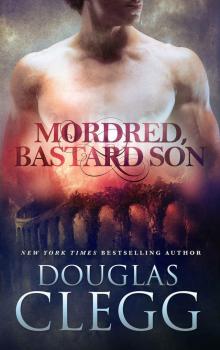 Mordred, Bastard Son
Mordred, Bastard Son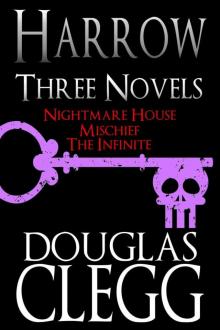 Harrow: Three Novels (Nightmare House, Mischief, The Infinite)
Harrow: Three Novels (Nightmare House, Mischief, The Infinite)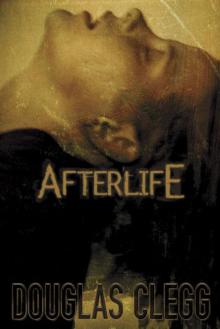 Afterlife
Afterlife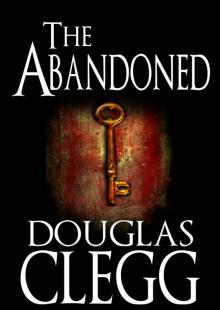 The Abandoned - A Horror Novel (Thriller, Supernatural), #4 of Harrow (The Harrow Haunting Series)
The Abandoned - A Horror Novel (Thriller, Supernatural), #4 of Harrow (The Harrow Haunting Series)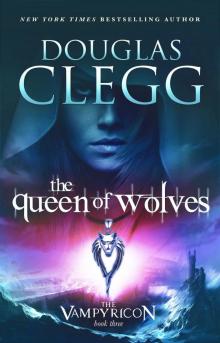 The Queen of Wolves
The Queen of Wolves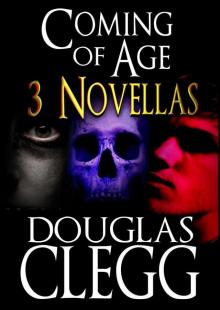 Coming of Age: Three Novellas (Dark Suspense, Gothic Thriller, Supernatural Horror)
Coming of Age: Three Novellas (Dark Suspense, Gothic Thriller, Supernatural Horror)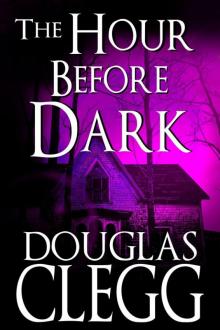 The Hour Before Dark
The Hour Before Dark Isis
Isis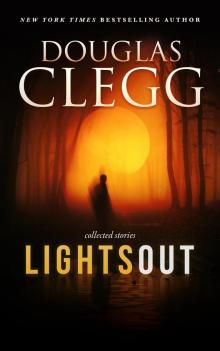 Lights Out
Lights Out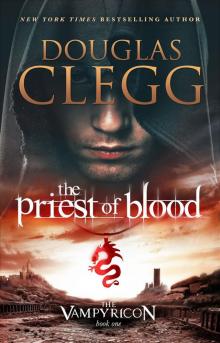 The Priest of Blood
The Priest of Blood Criminally Insane: The Series (Bad Karma, Red Angel, Night Cage Omnibus) (The Criminally Insane Series)
Criminally Insane: The Series (Bad Karma, Red Angel, Night Cage Omnibus) (The Criminally Insane Series)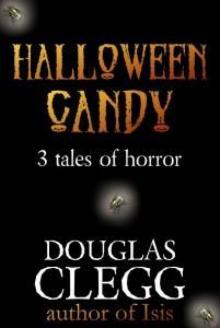 Halloween Candy
Halloween Candy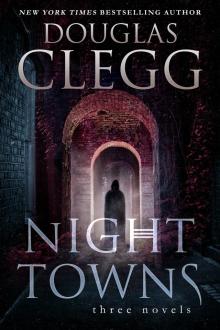 Nights Towns: Three Novels, a Box Set
Nights Towns: Three Novels, a Box Set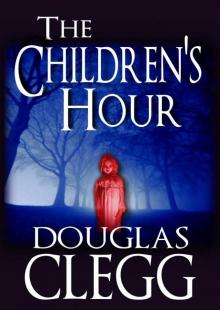 The Children's Hour - A Novel of Horror (Vampires, Supernatural Thriller)
The Children's Hour - A Novel of Horror (Vampires, Supernatural Thriller)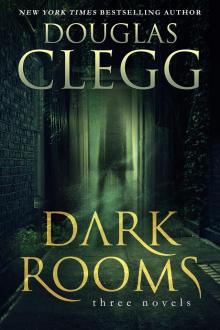 Dark Rooms: Three Novels
Dark Rooms: Three Novels![[Criminally Insane 01.0] Bad Karma Read online](http://i1.bookreadfree.com/i2/04/10/criminally_insane_01_0_bad_karma_preview.jpg) [Criminally Insane 01.0] Bad Karma
[Criminally Insane 01.0] Bad Karma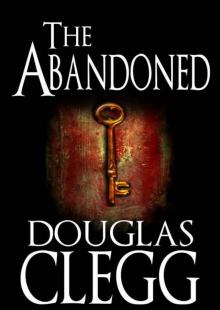 The Abandoned - A Horror Novel (Horror, Thriller, Supernatural) (The Harrow Haunting Series)
The Abandoned - A Horror Novel (Horror, Thriller, Supernatural) (The Harrow Haunting Series)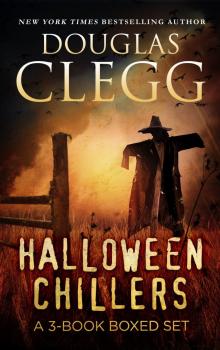 Halloween Chillers: A Box Set of Three Books of Horror & Suspense
Halloween Chillers: A Box Set of Three Books of Horror & Suspense